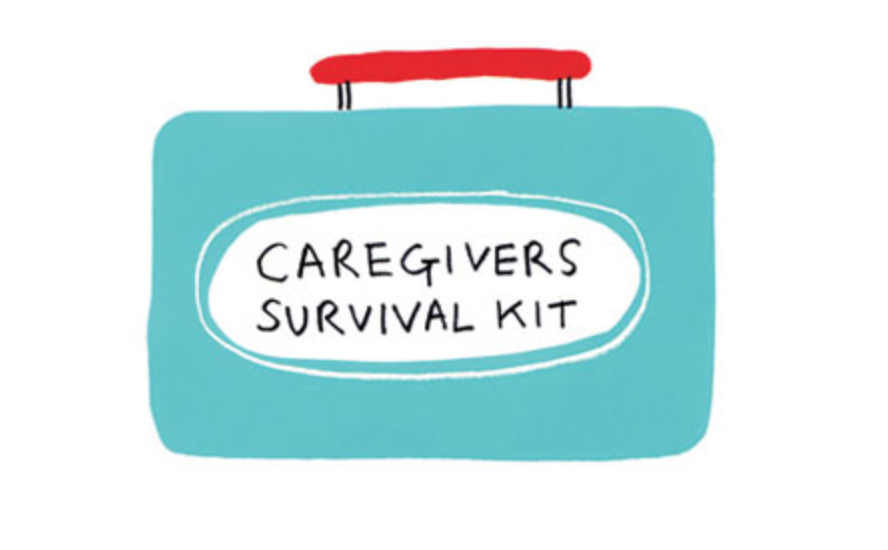How to Avoid Caregiver Burnout
InspirationFamily members and loved ones deal with a lot of stress when a person is diagnosed with dementia or Alzheimer’s. A diagnosis like this can be incredibly overwhelming and it can often lead to stress and depression in caregivers. The golden rule in rendering aid when your loved one has dementia is that you cannot provide care if you haven’t first taken care of yourself.
“Put your oxygen mask on first.”
Exercise for Health, Memory & Less Depression
Exercise has a lot of scientifically proven benefits beyond developing more muscles. Exercising 20 minutes a day has been linked to “less depression, better memory and quicker learning. Studies also suggest that exercise is, as of now, the best way to prevent or delay the onset of Alzheimer’s disease.” (Time.com)
Eat Healthy
You know that greasy, heavy feeling you get when you’ve just binged on a large meal from the drive-through down the road? Yeah that’s not just in your head. It can be tempting when caring for another person to grab fast-food for most meals – you never seem to have enough time and it always feels easier.
Try to cook healthy at home. You’ll feel better overall, and that can help lend you patience and energy when you might be running low on either or both. Some tips on making meal preparations easier and quicker for caregivers:
Cook One — Freeze Three: If you are going to cook you might as well stretch it as far as you can. Cook enough for two to four meals at a time. Freeze them for whenever you need them. Chicken soup is a good example. In order to make chicken soup you either have to purchase a cooked chicken or cook it yourself. Use one third of the chicken to make the soup. Use one third of the chicken to make a chicken and rice stew. Use the last third to freeze boneless chicken meat that can be used for a sandwich. One cooking session – three meals.
The Blender is Your Friend: Plan ahead for smoothies. Throw bananas and baggies of strawberries and melon balls in the freezer. If you need a quick breakfast, snack or light meal, a smoothie made with frozen fruit, milk, low-fat yogurt and even a bit of peanut butter is a nutrition powerhouse. There can be as many as 4 to 5 servings of fruit in one 8-ounce smoothie.
High Nutrition Shortcuts: Think powerful nutrition in small packages. Small meals and snacks throughout the day can be just as nutritious. You can make quick breads that are full of high-nutrition ingredients — like banana, pumpkin, lemon breads.
Slow Cooking Quick Meals: Slow cookers are wonderful inventions. You can cook a large quantity of food and then freeze it in individual portions. The slow cooker brings out the natural juices and flavors of the food so reducing fat and salt becomes extremely easy. And, the house is filled with appetizing smells.
Join a Dementia/Alzheimer’s Caregiver Group
Having a support network of people going through the same thing you are is invaluable. There is no question that it is easier to go through difficult times when you have someone with whom you can share your experiences, frustrations and difficulties. An Alzheimer’s Caregiver Support Group offers just that – a safe place for caregivers, family and friends of persons with dementia to meet and develop a mutual support system. If you aren’t big on face to face interactions, there are plenty of ways you can join a dementia caregiver group online, where you can participate with others when you feel up to it or have questions.
Some great places to start:
Designed to help people under the age of 40 who are navigating their way through this disease while attending school, raising families of their own or developing careers, Hilarity for Charity’s Google Hangout Support Groups are offered in a variety of time zones to help fit caregivers’ busy schedules.
Groups are forming across the country. Get involved by emailing HFC at [email protected]. More information visit Hilarity for Charity.
The Alzheimer’s Association’s support groups are facilitated by trained individuals.
In addition to caregiver support groups, they also have support groups designed specifically for people in the early stage of Alzheimer’s. The Alzheimer’s Association has chapters across the country. For more information visit the Alzheimer’s Association.
Prefer to get support online? Join AlzConnected, the Alzheimer’s Association’s online community of caregivers.
“The best and most beautiful things in the world cannot be seen or even touched. They must be felt with the heart.” – Helen Keller



